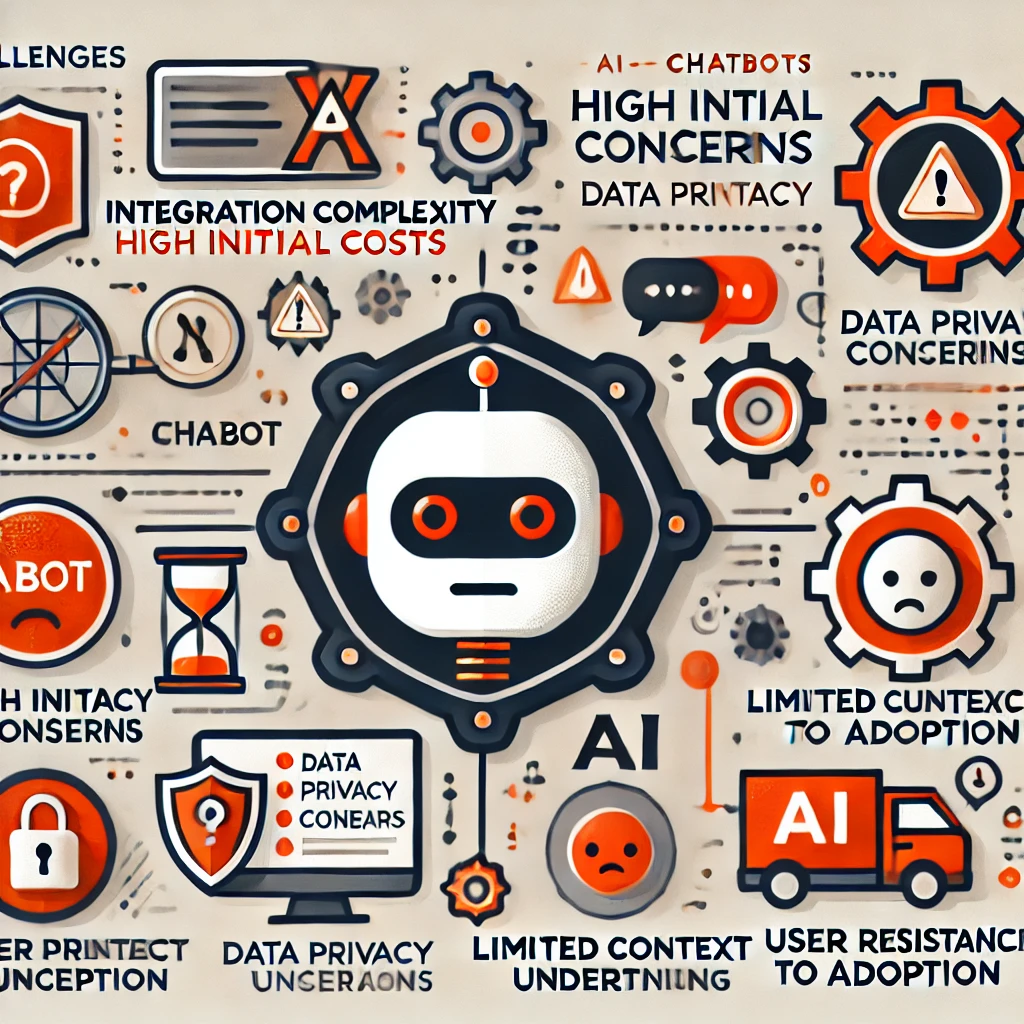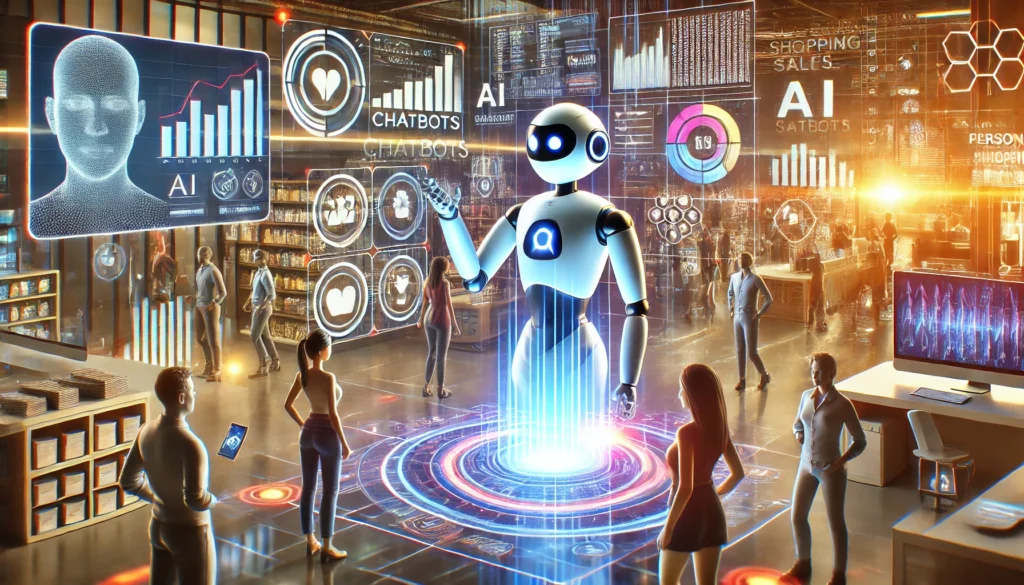
Introduction: Transforming Sales Through AI

In the ever-evolving digital economy, businesses are continuously seeking innovative ways to connect with their customers. One of the most revolutionary technologies in this space is the AI Chatbot. These intelligent virtual assistants are no longer confined to customer support but have become pivotal players in the sales ecosystem.
By combining the power of artificial intelligence (AI) and natural language processing (NLP), AI Chatbots can perform a wide array of sales-related tasks—from identifying leads and recommending products to closing deals. This blog post explores the role of AI Chatbots in modern sales, their advantages, challenges, and how businesses can prepare for the future of sales powered by AI.
1. What Are AI Chatbots? An In-Depth Explanation
AI Chatbots are intelligent systems capable of simulating human conversation. Unlike traditional chatbots, which rely on pre-programmed scripts, AI-powered versions use machine learning algorithms and NLP to adapt and respond based on user input.
How AI Chatbots Work
- Natural Language Understanding (NLU): Helps the chatbot comprehend user queries, even if phrased differently.
- Machine Learning: The chatbot learns from previous conversations, refining its responses over time.
- Data Integration: Chatbots pull data from various systems (e.g., CRM, e-commerce platforms) to provide personalized responses.
These capabilities make AI Chatbots versatile tools that can handle complex sales interactions while offering a seamless customer experience.
2. The Expanding Role of AI Chatbots in Sales

2.1 Lead Generation
AI Chatbots can engage website visitors, ask qualifying questions, and categorize leads based on interest and readiness to buy. This automated process saves time and ensures that only high-potential leads reach human sales teams.
2.2 Sales Personalization
AI Chatbots use behavioral data, purchase history, and customer profiles to make personalized product recommendations. For instance, a chatbot on an online clothing store might suggest a matching accessory based on the item in a user’s cart.
2.3 Closing Deals
Advanced AI Chatbots can handle end-to-end transactions, from product selection to payment processing. They guide customers through the buying journey and provide the information they need to make informed decisions.
2.4 Upselling and Cross-Selling
AI Chatbots are excellent at upselling and cross-selling. By analyzing customer preferences, they suggest premium or complementary products, increasing the average order value.
3. Benefits of AI Chatbots for Sales

3.1 Efficiency and Scalability
AI Chatbots can manage thousands of interactions simultaneously, ensuring no customer query goes unanswered, regardless of the time or volume.
3.2 Reduced Costs
Implementing AI Chatbots significantly reduces the need for large sales teams, lowering overhead costs while maintaining high efficiency.
3.3 Enhanced Customer Engagement
Chatbots provide instant, personalized assistance, keeping customers engaged and more likely to complete their purchases.
3.4 Insightful Analytics
By analyzing customer interactions, chatbots offer businesses valuable insights into buying behavior, preferences, and pain points, enabling data-driven decision-making.
4. Challenges in Implementing AI Chatbots

While AI Chatbots offer numerous benefits, businesses must address certain challenges to maximize their effectiveness:
4.1 Limited Emotional Connection
Although chatbots excel in logical problem-solving, they lack the emotional intelligence required to build deep, personal connections with customers.
4.2 Training and Maintenance
AI Chatbots require continuous training and updates to stay effective, especially as customer expectations evolve.
4.3 Privacy Concerns
Handling sensitive customer data requires robust security measures and strict compliance with data protection regulations.
4.4 Initial Investment Costs
Developing and deploying an advanced AI Chatbot can be expensive, making it a challenge for smaller businesses to adopt.
5. The Future of AI Chatbots in Sales

AI Chatbots are poised to become even more sophisticated in the coming years. Here’s a glimpse into the future:
5.1 Voice-Powered Sales Assistance
As voice technology gains popularity, chatbots will increasingly interact with customers through conversational voice interfaces, making sales interactions more intuitive.
5.2 Augmented Reality (AR) Integration
Imagine a customer shopping for furniture. A chatbot integrated with AR could guide them through visualizing how a product fits into their space, enhancing decision-making.
5.3 Predictive Sales
Future chatbots will proactively recommend products or services based on predictive analytics, anticipating customer needs before they express them.
5.4 Multilingual Capabilities
AI Chatbots will break language barriers, enabling businesses to reach a global audience with localized, real-time communication.
6. Real-World Examples of AI Chatbots in Action
Case Study 1: Retail
An online retailer implemented a chatbot to guide customers through product discovery. The result? A 25% increase in sales conversions and reduced cart abandonment rates.
Case Study 2: Financial Services
A financial institution used an AI Chatbot to provide personalized investment advice, leading to a 40% improvement in customer retention.
Case Study 3: Hospitality
A hotel chain deployed chatbots to handle room bookings and upsell premium services, resulting in a 20% increase in revenue.
7. FAQs: Frequently Asked Questions
Q1: What industries benefit most from AI Chatbots in sales?
AI Chatbots are versatile and can be used in various industries, including retail, finance, hospitality, healthcare, and technology.
Q2: How do AI Chatbots improve the customer experience?
AI Chatbots provide instant, accurate responses and personalized recommendations, ensuring a seamless customer journey.
Q3: Are AI Chatbots suitable for small businesses?
Yes, small businesses can implement affordable chatbot solutions to automate customer interactions and boost sales without a large team.
Q4: How secure is customer data handled by AI Chatbots?
Modern AI Chatbots use advanced encryption and data protection measures, ensuring customer data remains secure.
Q5: Can AI Chatbots replace human sales teams?
AI Chatbots are designed to complement human sales teams by automating repetitive tasks, allowing humans to focus on building relationships and handling complex negotiations.
Conclusion: A New Era for Sales Teams
As the world continues to digitize at an unprecedented pace, the role of AI Chatbots in sales is becoming increasingly vital. These intelligent virtual assistants are not just tools for automating mundane tasks; they represent a seismic shift in how businesses interact with their customers. By blending advanced technologies like natural language processing, machine learning, and predictive analytics, AI Chatbots deliver a level of personalization and efficiency that was once unimaginable.
The ability of AI Chatbots to operate 24/7, handle multiple queries simultaneously, and adapt to individual customer needs makes them an invaluable asset for businesses of all sizes. For large enterprises, they enhance scalability, reduce operational costs, and provide data-driven insights that fuel growth. For small and medium-sized businesses, they democratize access to sophisticated sales tools, enabling them to compete with larger players in their industry.
Moreover, AI Chatbots have proven their effectiveness in addressing key sales challenges. From qualifying leads and closing deals to upselling and cross-selling, they streamline the customer journey while minimizing friction. Their real-time responsiveness keeps customers engaged, reduces cart abandonment, and fosters loyalty. This is particularly significant in an age where customers demand instant gratification and seamless interactions.
However, the journey to integrating AI Chatbots into a sales strategy is not without its hurdles. Businesses must invest in proper training, customization, and regular updates to ensure the chatbot remains effective and relevant. Addressing privacy concerns and complying with data protection laws are also critical to building customer trust. The upfront costs can seem daunting, but the long-term benefits far outweigh the initial investment, making AI Chatbots a smart and forward-thinking solution.
Looking ahead, the potential of AI Chatbots continues to expand. With advancements in voice recognition, augmented reality, and multilingual capabilities, these tools will become even more versatile, bridging gaps between businesses and their customers. Imagine a future where chatbots proactively anticipate customer needs, offering tailored solutions before a query is even made. This proactive engagement will redefine customer expectations and raise the bar for sales excellence.
In conclusion, AI Chatbots are not just a trend—they are the future of sales. Businesses that adopt and adapt these technologies now will gain a significant competitive advantage in the years to come. Whether you are a startup looking to make an impact or a well-established enterprise seeking to enhance efficiency, the time to embrace AI Chatbots is now. They are more than just sales representatives; they are strategic partners in achieving your business goals. By leveraging their full potential, you position your business not only to survive but to thrive in the digital age.
This is the dawn of a new era in sales—a future where technology and human ingenuity combine to create unparalleled opportunities. Are you ready to let AI Chatbots lead your sales efforts into this exciting future? The choice is yours, and the possibilities are limitless.



